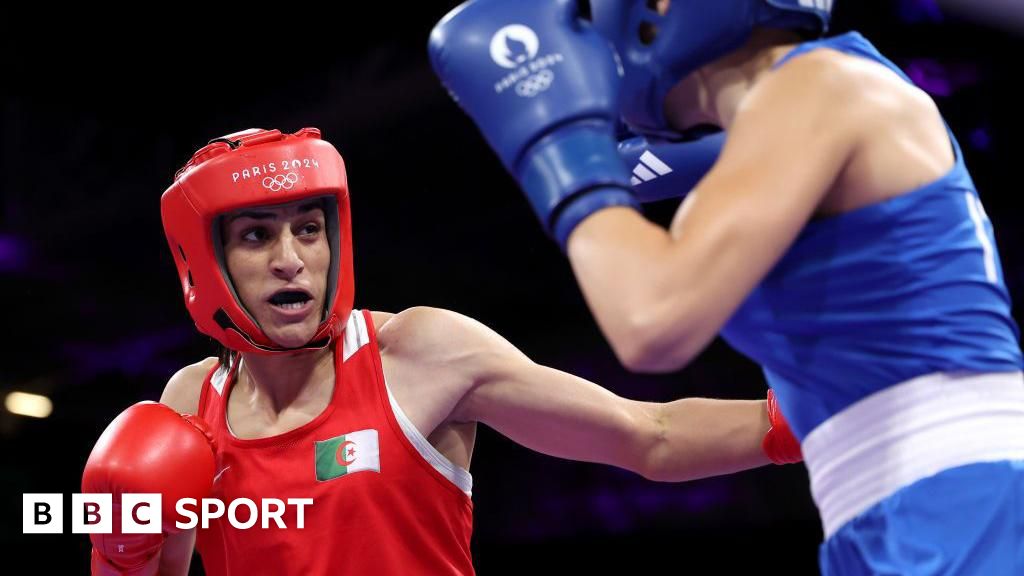Khelif’s victory attracted controversy, and criticism from some people, after Carini conceded in just 46 seconds.
The Italian boxer, who said she had to “preserve her life” following the abandoned bout, has since apologised to her opponent.
Much of the criticism stems from Khelif’s disqualification at the 2023 World Championships in New Delhi, India.
She failed a gender eligibility test conducted by the IBA hours before her gold medal showdown against China’s Yang Liu. The Algerian initially appealed against the decision with the Court of Arbitration of Sport, but withdrew her appeal during the process.
The Russian-led IBA said Khelif “failed to meet the eligibility criteria for participating in the women’s competition, as set and laid out in the IBA regulations”.
According to the IBA’s regulations: “Boxers will compete against boxers of the same gender, meaning women vs women and men vs men as per the definitions of these rules.
The IBA defines a woman, female or girl as “an individual with chromosome XX” and men, males or boys as “an individual with chromosome XY”.
The IBA denied Khelif’s testosterone levels had been tested.
In an interview with BBC sports editor Dan Roan on Thursday, IBA chief executive Chris Roberts said XY chromosomes were found in “both cases”.
Roberts said there were “different strands involved in that” and therefore the body could not commit to referring to Khelif as “biologically male”.
The IOC has raised doubts over the accuracy of the tests.
“We don’t know what the protocol was, we don’t know whether the test was accurate, we don’t know whether we should believe the test,” said IOC spokesperson Adams.
“There’s a difference between a test taking place and whether we accept the accuracy or even the protocol of the test.”
The BBC has, as yet, been unable to determine what the eligibility tests consisted of.

